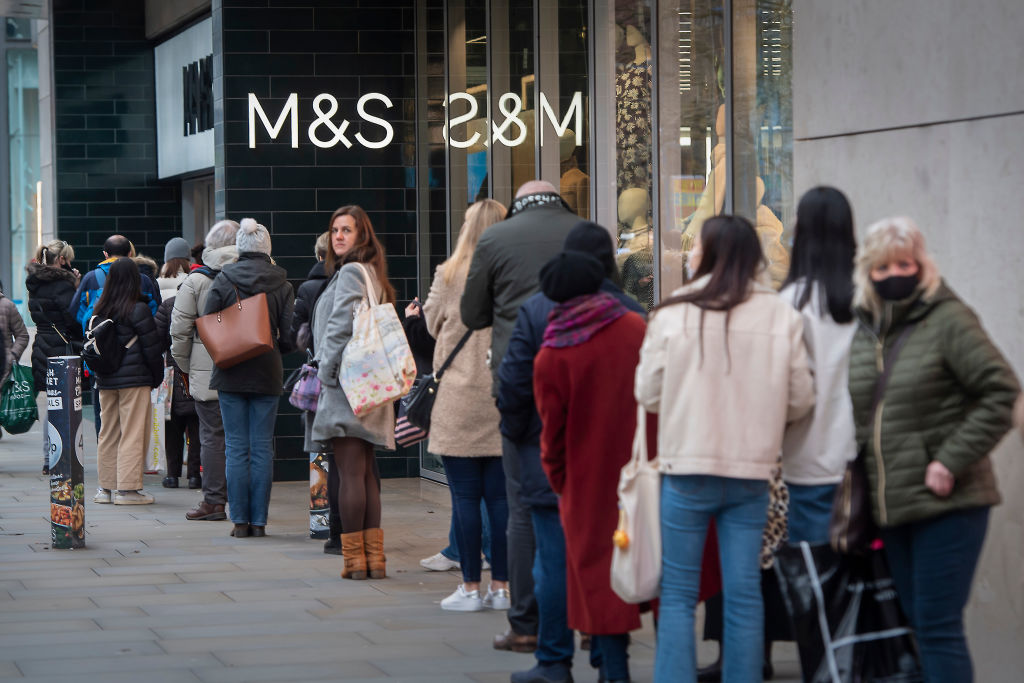Our businesses have been built by industrious refugees seeking a new future

Exactly a hundred and forty years ago, a refugee fled eastern Europe fearing for his life. On arriving in Britain, Michael Marks began selling food from a stall in the Kirkgate Market in Leeds. Two years later, after meeting Thomas Spencer, the pair set up Marks and Spencer. Now it is one of Britain’s most trusted and beloved brands.
It was fitting, therefore, that M&S has been at the forefront of efforts to help Ukrainian refugees by offering them jobs. Over 45 businesses, including Asos, have been urging the government to take more urgent steps in support of the Ukrainians wishing to come to this country. While the initial political response may have been faltering, the recently announced Homes for Ukraine scheme is a welcome step.
All this highlights is that the response to the refugee crisis cannot be left to the state alone and that business too has an important role to play. Following the invasion of Ukraine, business cannot exist in a moral vacuum. It is encouraging that so many influential organisations including Google, Netflix and Unilever, have withdrawn from Russia. Bullies, tyrants and oppressors are always emboldened when there is a lack of action. Thankfully many British businesses have seemed to internalise Edmund Burke famous dictum: “The only thing necessary for the triumph of evil is for good people to do nothing.”
Businesses with operations and staff in Ukraine have obligations towards them and their immediate families. As businesses, we should withdraw from Russia, but it is also on us to be proactive in supporting the people seeking refuge. It’s been reassuring to see so many organisations supporting the refugees, by providing food, clothing, other resources and looking at how they can provide jobs.
To refuse a person facing danger, escaping from horrifying circumstances and who is seeking refuge and safety is a crime of the conscience. Through its history, the UK has shown its shared humanity by welcoming groups escaping persecution such as Huguenots, Jews and Ugandan Asians. At other times, excuses have been made and the barriers have gone up. The first tragedy is the barbarism, desperation, cruelty, isolation and violence experienced in a war zone, the second tragedy is when countries that can help lose their humanity.
As Jonathan Sacks said “A nation that gives is given back more than it gives. Those who lift others are themselves lifted.”
There are countless examples of refugees and migrants setting up successful businesses. A report by the Entrepreneurs Network published in 2019 found that 49 per cent of the UK’s fastest-growing businesses have at least one foreign-born co-founder.
These are the times that truly test our commitments to human rights and freedoms. When totalitarians and persecutors remove values, we have a responsibility to restore them and ascend. Business cannot abstain from this and has a more powerful role than ever. It is easy to preach a virtuous ESG and purpose-led rhetoric, but it’s times like this, that true character is revealed.
Alongside compassionate individuals, the government and charities, business needs to continue to play a leading part in supporting Ukraine and its displaced. Any person or organisation that acts for human rights somewhere is fighting for human rights everywhere.
